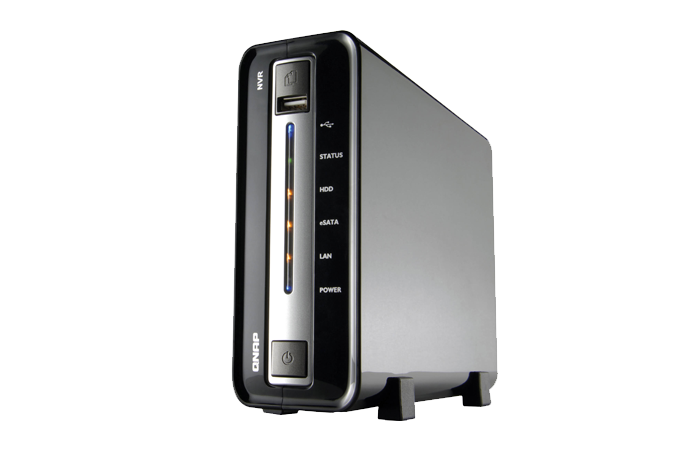Network Video Recorder (NVR): The Future of Surveillance Systems
Upgrade your security system with a Network Video Recorder (NVR). Unlike traditional Digital Video Recorders (DVRs), NVRs provide advanced, IP-based video recording and management, offering superior image quality, flexible integration, and enhanced scalability. Whether you’re protecting a home, business, or large commercial property, an NVR ensures your surveillance footage is stored securely and can be accessed remotely at any time.
What is a Network Video Recorder (NVR)?
A Network Video Recorder (NVR) is a device used to record video footage from IP cameras (Internet Protocol cameras). Unlike DVRs, which work with analog cameras, NVRs are designed specifically for digital video surveillance, allowing for higher-resolution video, more flexible camera placement, and more advanced features like remote monitoring and integration with cloud storage.
NVRs connect to IP cameras over a local area network (LAN) or even over the internet, enabling users to store and manage video footage in a digital format. This IP-based system makes NVRs ideal for modern surveillance setups, offering advanced performance, scalability, and ease of use.
Key Features of Network Video Recorders (NVR)
 High-Resolution Video: NVRs support higher resolutions, from HD (1080p) to 4K and beyond, ensuring crystal-clear footage for detailed monitoring. IP cameras connected to an NVR can capture higher-quality images and videos compared to traditional analog cameras.
High-Resolution Video: NVRs support higher resolutions, from HD (1080p) to 4K and beyond, ensuring crystal-clear footage for detailed monitoring. IP cameras connected to an NVR can capture higher-quality images and videos compared to traditional analog cameras. Remote Viewing & Management: With an NVR, you can access live video and recorded footage from anywhere in the world. Whether you're at home, in the office, or on the go, you can monitor your property remotely using a smartphone, tablet, or computer.
Remote Viewing & Management: With an NVR, you can access live video and recorded footage from anywhere in the world. Whether you're at home, in the office, or on the go, you can monitor your property remotely using a smartphone, tablet, or computer. Scalability: NVR systems are highly scalable. You can easily add more IP cameras to your network without the limitations of a traditional DVR system. This makes NVRs ideal for growing businesses or expanding surveillance coverage.
Scalability: NVR systems are highly scalable. You can easily add more IP cameras to your network without the limitations of a traditional DVR system. This makes NVRs ideal for growing businesses or expanding surveillance coverage. PoE (Power over Ethernet) Capability: Many NVR systems support Power over Ethernet (PoE), allowing you to power IP cameras directly through the Ethernet cable. This reduces the need for additional power sources and simplifies installation, especially for large setups.
PoE (Power over Ethernet) Capability: Many NVR systems support Power over Ethernet (PoE), allowing you to power IP cameras directly through the Ethernet cable. This reduces the need for additional power sources and simplifies installation, especially for large setups. Flexible Storage Options: NVRs typically offer large storage capacities, and you can often add additional storage devices (e.g., external hard drives or NAS systems) to increase recording space. You can store weeks, months, or even years of video footage depending on the size of the storage.
Flexible Storage Options: NVRs typically offer large storage capacities, and you can often add additional storage devices (e.g., external hard drives or NAS systems) to increase recording space. You can store weeks, months, or even years of video footage depending on the size of the storage. Advanced Video Analytics: Many modern NVR systems come with built-in video analytics, such as motion detection, face recognition, and intrusion detection, making it easier to monitor specific areas for suspicious activity and improve overall security.
Advanced Video Analytics: Many modern NVR systems come with built-in video analytics, such as motion detection, face recognition, and intrusion detection, making it easier to monitor specific areas for suspicious activity and improve overall security. Cloud Integration: Some NVR models allow cloud backup for additional storage and security. You can back up video footage to the cloud, ensuring that even if your local storage is compromised, your recordings remain safe.
Cloud Integration: Some NVR models allow cloud backup for additional storage and security. You can back up video footage to the cloud, ensuring that even if your local storage is compromised, your recordings remain safe. Multiple Camera Support: NVRs can support numerous IP cameras, and you can monitor and record from various locations simultaneously, providing comprehensive coverage for your property. Whether you have a few cameras or a network of dozens, an NVR system can handle it.
Multiple Camera Support: NVRs can support numerous IP cameras, and you can monitor and record from various locations simultaneously, providing comprehensive coverage for your property. Whether you have a few cameras or a network of dozens, an NVR system can handle it.
